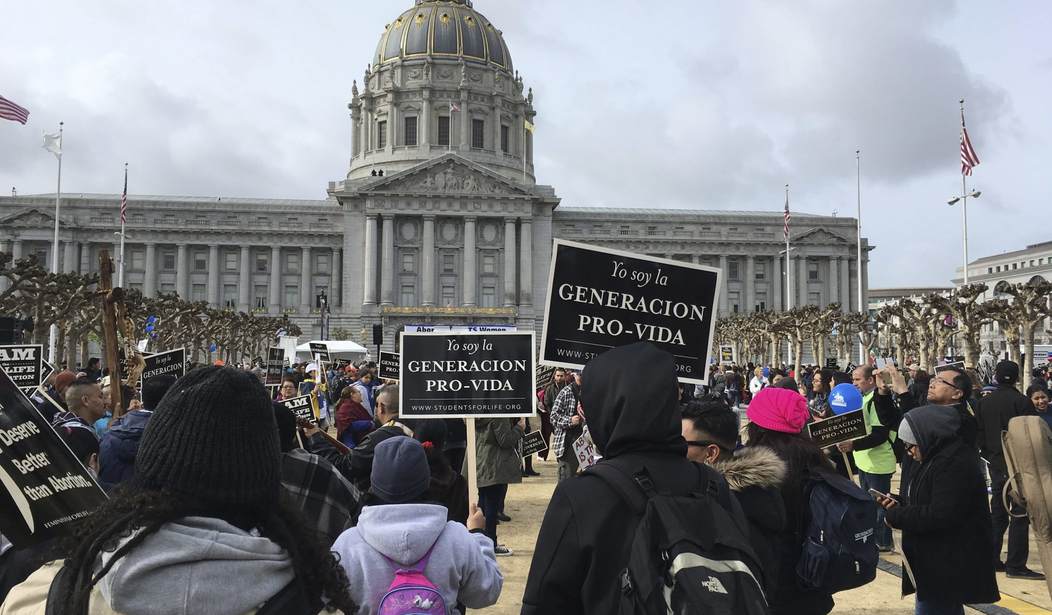University of California, Davis, students can now get Advil, tampons, pregnancy tests, condoms, and abortion pills from a study lounge vending machine.
Former UC Davis student Parteek Singh spearheaded the drive to get the machine installed.
“The more skeptical and negativity I got from other people like ‘oh it’s not gonna happen,’ kind of pushed me more,” Singh told KRON.
Someday soon, every college kid in California could have easy access to the Plan B drug known as the “Morning After” pill that is intended to block ovulation but is also known to end a pregnancy days after it begins.
At least one Democrat in the California Legislature is holding out hope that young women soon will just have to show up at their nearest on-campus health center to end the possibility of pregnancy.
Pro-life advocates in California have stopped, for the time being, Sen. Connie Leyva’s (D) bid to force state colleges and universities to hand out abortion-inducing drugs to college women.
But it wasn’t just pro-life people who blocked the legislation.
SB 320 was approved by the Senate Health Committee in April but is expected to languish in the Senate Education Committee for several months while Leyva considers improvements to the legislation to make it more palatable to her colleagues.
SB 320 would require that each campus in the California State University system either offer medicated abortion services and “accurate abortion counseling” to students or provide transportation to a medical facility where a young woman could get morning-after pills, counseling, or an abortion.
Even in the Democratic-dominated California Legislature, this was not a hugely popular bill.
Even though the Health Committee approved the legislation and sent it to the Education Committee, a legislative staff report showed there was no estimate of the cost of the mandate, nor was there any empirical data to prove that students either couldn’t get abortion pills any other way or even wanted them.
One of Leyva’s fellow Democrats, Sen. Ed Hernandez, the chairman of the Senate Health Committee, said he was for the “discussion” and the “concept” of the abortion pill bill. But he added, “There’s a lot more work to be done.”
Twenty-year-old “Jessica,” who preferred not to be identified by her real name, told CBS 13 in Sacramento an unexpected pregnancy while attending UC Berkeley convinced her that morning-after pills should be readily available on college campuses.
“I had to see a counselor in order to get referred out and go to multiple appointments to prove I was pregnant, and go to the hospital, it was a long process,” Jessica said. “It was a huge surprise because I practiced safe sex.”
“We are in a chapter of our lives that’s setting up the rest of our lives,” Jessica added. “If we have a barrier like an unintended pregnancy, that’s just setting up for a life of complications and struggles.”
Leyva said she wrote the legislation after UC Berkley rejected a student-led petition drive to provide the pills at its on-campus health center.
“All women in California, including college-aged women attending public universities, must have access to safe and timely reproductive health care on campus, including early pregnancy termination,” Leyva said in a statement.
“College students should be able to secure their academic success and plan when to have a family in a way that is supportive of their own personal decisions for their education and future,” Leyva added.
Groups like the California Family Council protested abortions would come too easy to young college women, who themselves could be harmed by the so-called “morning-after” pills.
College and university leaders were worried about additional cost and liability issues.
“Student health centers are supported by student fees,” Angela Gilliard of the University of California told Capital Public Radio. “Adding specialists for this service would add an additional expense directly for students.”
Community colleges were included in the first draft of the legislation, but that was scratched. Another provision that would have demanded California universities and colleges write abortion pill coverage into the student health insurance places was also erased.
Still, the California Family Council is not happy with the bill.
“California students struggling with the trauma of giving birth to their dead babies in their dorm rooms could be a common occurrence if SB 320 gets approved,” warned an article posted on the council’s blog.
“Not only will this bill destroy the lives of innocent children, but the chemical abortion medication being mandated has a notorious reputation for being very painful and traumatic,” said California Family Council CEO Jonathan Keller. “These drugs are known for not just causing physical pain to the mother, but psychological anguish that could last a lifetime.”









Join the conversation as a VIP Member